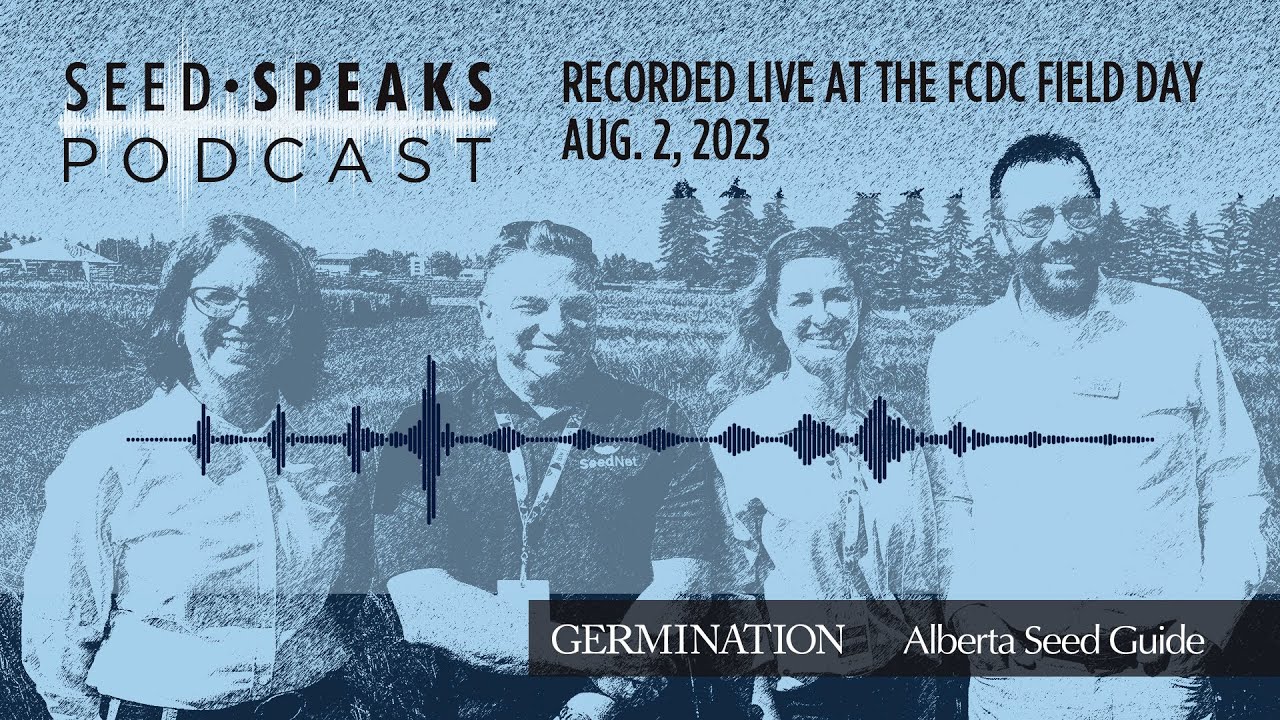At this year’s Field Crop Development Centre Field Day, a panel discussion shed light on why increasing certified seed use is vital to the health of agriculture.
The seed value chain helps contribute to sustainability in a big way, and there’s a need to get the message out about how new genetics are integral to ensuring the future of Canadian farming. The future of the seed industry may hang in the balance.
That was the message that came out of a recent panel discussion held during the Olds College Field Crop Development Centre Field Day on Aug. 2 in Olds, Alta. Held during AgSmart, the event saw four well-known members of the Alberta seed community offer their thoughts on how to secure the future of Canadian agriculture through certified seed.
Featured on the panel were Sheri Strydhorst, owner of Sheri’s Ag Consulting; Jeff Jackson, general manager of SeedNet Canada; Chelsea Tomlinson, seed grower and operator of True Seeds; and Greg Stamp, seed sales manager for Stamp Seeds.
The discussion revolved around the challenges facing the Canadian farming industry, particularly in the realm of seed breeding and adoption of new genetics for crops. Jackson expressed concerns about the changing landscape of agriculture, where farms are consolidating and growing in size, leading to a scenario where one farm now cultivates the same acreage that 10 farms used to. Despite this shift, the amount of seed being sold per individual hasn’t changed significantly.
“We’re facing tough decisions ahead, particularly in finding ways to fund breeding programs that will sustain our kids’ future in agriculture. Those discussions won’t be easy,” Jackson said.
“The key is to manage the system more efficiently and encourage education and understanding about the advantages of genetics.”
It’s clear that we’re falling short in communicating the benefits of genetics effectively, said Stamp.
To illustrate this, he used the example of canola seed — a major crop in Western Canada with remarkable growth over the past decades.
“Despite the continuously rising cost of canola seed, farmers haven’t been deterred from planting more acres,” he said.
However, a contrasting narrative emerges when it comes to certified seed for cereal crops.
“Many perceive the cost as too high, but I believe we need to reshape this perspective. We must work on conveying the message that this isn’t merely an expense; it’s an investment in securing the best possible future for our crops. It appears that growers often miss this crucial aspect, and I think there’s a significant effort required to bridge this gap in understanding.”
It’s our industry’s responsibility to shoulder the task of education, said Strydhorst.
“Whenever I come across a fellow grower and inquire about the variety they’re cultivating, and they mention an old variety, I can’t help but feel like there’s so much untapped potential in alternative varieties, and I liken this situation to someone choosing to use a combine from the 1970s when they have the option to upgrade to newer models,” she said.
The challenge here is that they might not fully comprehend the remarkable benefits that genetics can bring to their crops, making education crucial, Tomlinson added.
“As farmers, we tend to be more reactive in nature. We wait for issues to arise before taking action. For instance, when a new disease emerges and there is genetic resistance to that disease, seed sales spike because the impact becomes tangible. Our focus is consistently on net returns per acre, and adjusting seed purchases is a straightforward way to influence it positively” she said.
The group acknowledged the urgent need for change and highlights the importance of educating growers about the value of investing in intellectual property and innovation. There’s a fear that without proper support for breeding programs and registration trials, the seed industry could see a major negative impact from that, especially in the face of potential events like disease outbreaks.
Related Articles
The FCDC and AgSmart Bring Plant Breeding to a Wider Audience
2030 is Only Seven Years Away, For Erin Collier, That’s a Big Deal





